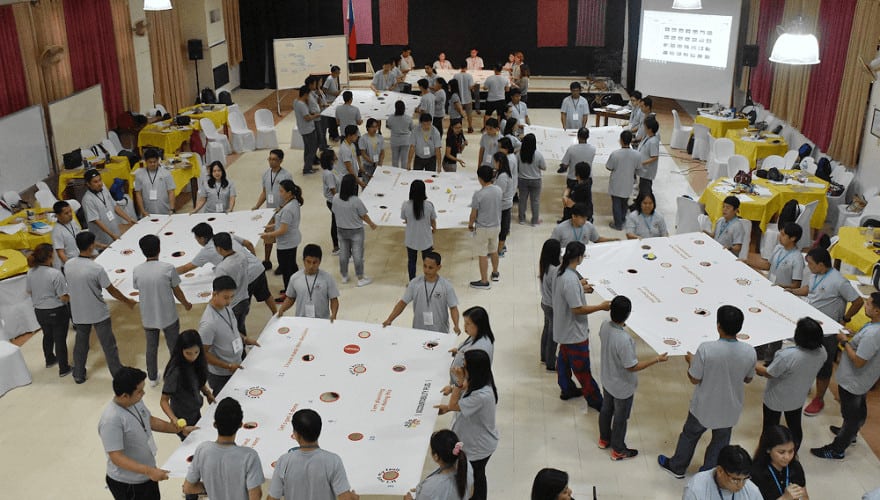When the Discaya couple appeared in that interview, it was supposed to be inspiring. A “rags-to-riches” story. A glimpse into their glamorous lifestyle. The kind of feature you’d expect to see on a weekend magazine show.
But the reaction from Filipinos? “Hindi inspiring. Walang dating.” Many felt something was off. Instead of admiration, there was discomfort. The couple casually credited their wealth to “DPWH projects,” and the veteran journalists in the room laughed along—no follow-up, no probing, no context.
At first, the critique was mild: the interview simply didn’t inspire.
But then came President Marcos’ revelation about widespread corruption in flood control projects. The companies of the Discayas, it turned out, were ranked second and third among those tied to the scandal. Suddenly, everything looked different.
Now the question was no longer, “Why didn’t this story inspire?” It became, “How could journalists let themselves be used like this?”
That’s why this moment matters. It wasn’t just a bad interview. It was a wake-up call—for all of us.
Because if journalists forget the truth, citizens must be the ones to remind them.
Media Ethics Is Not Optional
We often think of “media ethics” as something journalists discuss among themselves—like a professional checklist or a classroom subject. But media ethics is not just for them. It’s for us.
When journalists fail in ethics, it’s ordinary citizens who pay. We end up voting with bad information. We celebrate leaders who don’t deserve it. We miss the chance to make sound, informed choices.
That’s why Christian Esguerra is right: media ethics should be part of public conversation. It’s not some hidden rulebook for reporters; it’s the standard every Filipino should expect and demand.
If we don’t care about ethics, we get propaganda instead of news. And propaganda doesn’t serve the people—it serves the powerful.
Media Literacy Is Our Shield
Scroll through Facebook for five minutes and you’ll see why media literacy is a survival skill today. Fake headlines. Clickbait. Influencers acting like journalists. Out-of-context quotes spreading like wildfire.
It’s easy to get overwhelmed. Many Filipinos eventually shrug and say, “Pare-pareho lang naman lahat.” That’s the danger—apathy. When we stop questioning, corruption thrives.
But media literacy is our shield. It’s about asking basic but powerful questions:
- Who is telling me this story?
- Who benefits if I believe it?
- What’s missing here?
Esguerra insists we must learn to “read, scrutinize, and analyze.” And the Discaya case proves it: the public was quick to sense that something wasn’t right, even before the corruption revelations surfaced.
We already have instincts. Media literacy sharpens them.
The True Role of a Journalist
Let’s be clear: journalists are not supposed to be cheerleaders, promoters, or lifestyle hosts for the powerful.
The true role of a journalist is simple but sacred: to inform the public with the context we need to make good decisions. That means asking uncomfortable questions, following the money, exposing lies no matter how well-dressed they appear.
Journalists stand in our place. They carry our right to know. When they trade that duty for access, favors, or popularity, they’re not just failing their profession—they’re failing us.
This is why we must remind them: your loyalty is to the people, not to power.
Spotting the Red Flags
The Discaya interview is a textbook case of what to watch out for. Here are red flags every Filipino must learn to recognize:
- Lifestyle over substance
When interviews highlight glamour but ignore obvious questions—like sudden unexplained wealth—it’s a red flag. - Uncritical “rags-to-riches” stories
A narrative sold as “inspiring” without verifying the source of wealth is not journalism. It’s PR. - Promotional elements
Campaign shirts, logos, or political branding in a supposed news piece are giveaways that someone’s agenda is at play. - “Public interest” used as a pretext
If coverage is defended as “what people want to see” but it actually shields the powerful, it’s not public interest. It’s manipulation.
Learning to spot these red flags doesn’t make us cynical. It makes us vigilant. And vigilance is the first defense against propaganda.
Loyalty Must Be to Citizens
Bill Kovach and Tom Rosenstiel, in The Elements of Journalism, put it simply: a journalist’s first loyalty is to citizens.
But too often, that loyalty shifts—to advertisers, politicians, or business interests. Access is dangled like a prize. Money changes hands. Coverage tilts.
When loyalty shifts, citizens lose. We are left blind to corruption. We are fed distractions instead of truth.
That’s why we must never tire of saying: journalists serve the people, not the powerful.
Trusting Filipino Discernment
Here’s the good news: Filipinos are not easily fooled.
Look at what happened after the Discaya interview. Even before corruption revelations surfaced, many Filipinos felt something was wrong. They asked the hard questions online. They sided with Pasig Mayor Vico Sotto, who raised concerns about the ethics of the interview.
Esguerra himself highlighted this: Filipinos are smart. We know right from wrong. Even in the middle of disinformation and propaganda, we can still sense when journalism falls short.
That’s a strength we must trust, nurture, and use more often.
Demanding Accountability
It’s not enough to criticize privately. We must hold media accountable.
- When an interview glosses over corruption, we must call it out.
- When news programs look like PR shows, we must ask why.
- When ethics are violated, we must not shrug and say, “Ganyan na talaga.”
If we keep the pressure on, dishonest practices will lose power. Corrupt journalists will fade into irrelevance. And those who hold the line—those who ask hard questions, refuse bribes, and risk unpopularity for truth—will shine brighter.
Because accountability doesn’t weaken journalism. It strengthens it.
The Faces of Corruption in Journalism
Not all corruption looks the same.
Some reporters accept small “envelopes” because of low pay. It’s wrong, but often rooted in systemic poverty. Esguerra calls this “forced corruption.”
But then there are the big names—the anchors, the celebrities, the ones already earning more than enough—who still use their platforms for greed. They promote candidates, soften stories, or look the other way when money is at stake. That’s worse. That’s betrayal at scale.
We should understand the difference. But we should excuse neither. Because every act of corruption, whether small or big, erodes public trust.
What Filipinos Can Do
So what can we do as citizens? How do we remind journalists of the truth when they forget?
- Ask sharper questions
Always ask: Who benefits from this story? Who’s missing? - Support ethical journalism
Subscribe, share, and amplify outlets and reporters who dig for truth. - Call out red flags
Don’t just scroll. Comment. Question. Keep the critique visible. - Teach media literacy
Start with family and friends. Teach kids how to question headlines. Make it a habit. - Reward the good
Celebrate journalists who do their job well. Let them know it matters.
Small acts of vigilance multiply. When enough of us do them, journalism will rise to the standard we set.
The Higher Standard
The Discaya controversy wasn’t just about one couple or one interview. It was a test. A reminder that journalism in the Philippines is fragile—and that it will only stay strong if citizens guard it fiercely.
We can’t afford to lower the bar. Not when corruption thrives in silence. Not when propaganda drowns out truth. Not when elections decide the future of our children.
So let’s set the standard high, and let’s keep it there:
- Journalists must be loyal to the truth.
- They must serve citizens, not power.
- They must probe, not promote.
- And when they forget, we will remind them.
Final Word
When journalists forget the truth, citizens must remind them.
Not with anger, but with standards.
Not with silence, but with vigilance.
Not with apathy, but with action.
Because in the end, journalism is not just their responsibility.
It is ours.
If you want Filipino values to show up as real behavior at work…
Let’s turn it into a culture shift experience.
→ Shift Experiences



